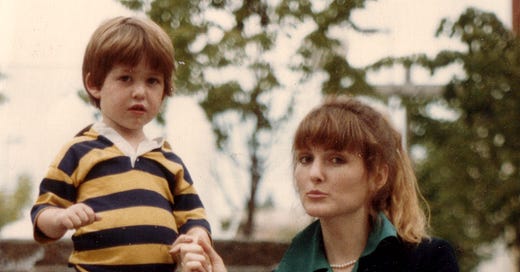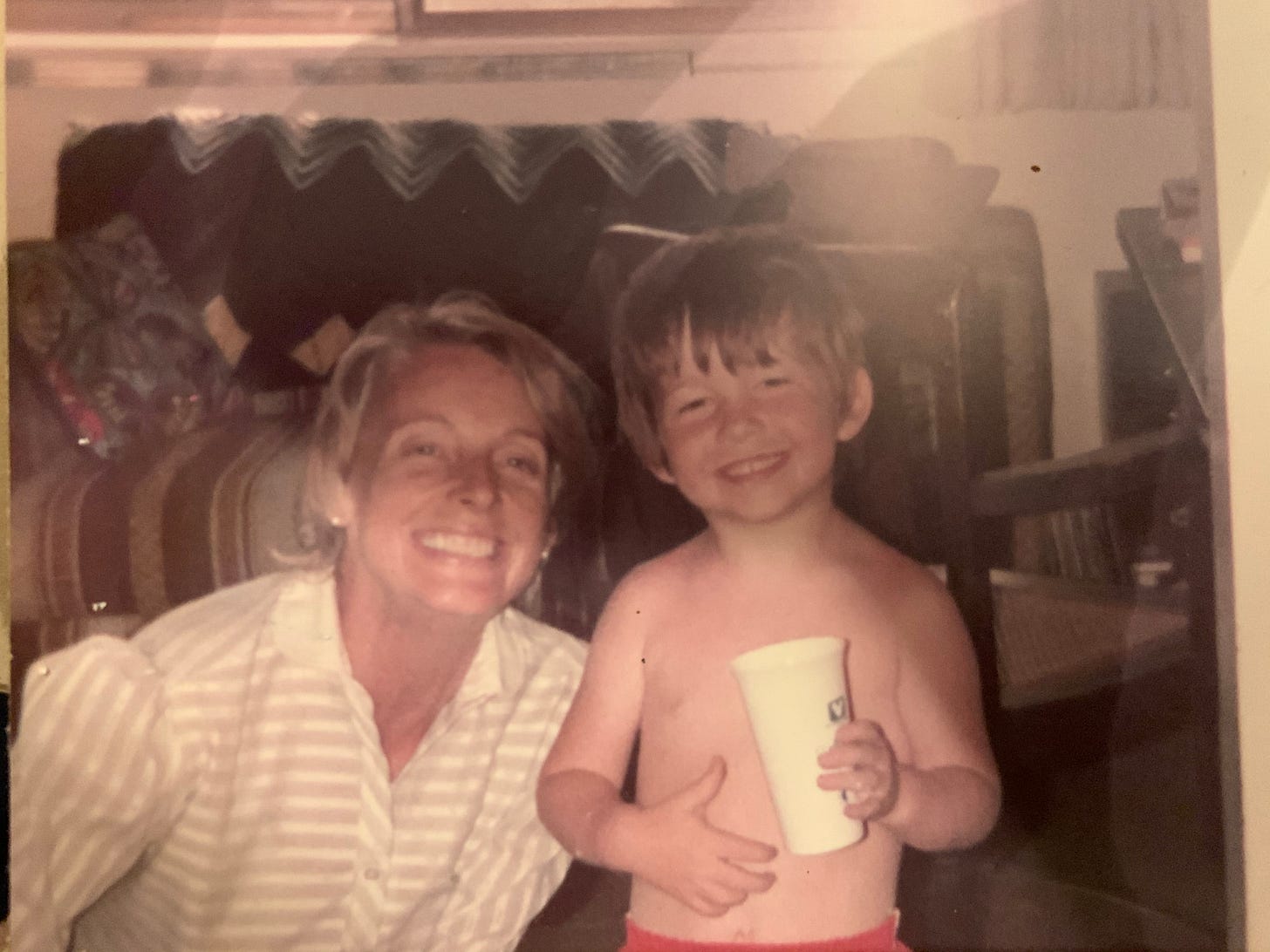Until she married my stepfather, I was raised by a single, feminist mother with an outsized personality. And so I easily relate to the Fight Club quote (and the frequent conservative critique): “we’re a generation of men raised by women.”
One of my earliest memories was from kindergarten, where some boys made fun of me for peeing while sitting down. Peeing while sitting down is what I knew. I thought it was how we all did it.
I was a quiet and sensitive kid, hardly the embodiment of 1980s masculinity portrayed by Rocky, Rambo, and He-Man. (Really though, just think about that name: He-Man!) I don’t remember being bullied by boys so much as being ignored by them. I spent most of my time with girls, which worked out well … at least until puberty when everything became very confusing.
Starting in high school, I distinctly remember feeling the need to be more manly, to prove myself to other men and win their respect. At the same time, I wanted to push back against what it meant to be masculine. I lifted weights, pounded beers, and played basketball to fit in. But I also tried to get my guy friends to read novels, talk about their feelings, and give real hugs without the obligatory double-slap on the back. 😂 This is still my approach today: fitting in and pushing back.
I believe this is what academics call socialization. We internalize and adopt the norms and ideologies of society. But we also push back against those norms and help evolve them.
I’ve been touched and inspired by some of the conversations prompted by our last podcast episode about masculinity. (Where you can audibly hear our double-pat on the back after we share our love for each other, even though we’re on Zoom!) And I’m looking forward to a Twitter Spaces conversation this Thursday at 4 pm PT with three friends to explore whether and how we may get to a positive vision of masculinity. You can find out more on the 12 Inquiries website, and I hope you’re able to join us.

Also:

A useful tool: Pocket to Kindle
It’s wild to me that you can buy a backlit Kindle for $60. I love my Kindle. It’s my favorite reading device despite its simplicity. (Or rather, because of its simplicity.) You don’t need to buy ebooks on Amazon for it to be useful — in fact, you can email your device just about any kind of document and read it without distraction. You can highlight, add notes — and they sync across all your devices, including the Kindle App for your phone.
But what really makes the Kindle my favorite reading device is a free website called Pocket to Kindle. Whenever I come across a long article that I want to read but don’t yet have the time, I save it to Pocket and then each Friday they are all sent over to my Kindle automatically as one distraction-free compilation. It’ll take about 15 minutes to set up, and definitely worth the time if you like to read long-form journalism but find yourself getting distracted by notifications.
Kudos
Kudos to my grandmother, who turned 93 last week. Her mind is sharp, her memory better than mine, she reads at least a book a week, and she plays in a jazz band every few days. Not bad.
My grandmother was 51 when I was born. She was born in Berkeley in 1929 (seven years before the Bay Bridge and Golden Gate Bridge were constructed to connect San Francisco with the East Bay and Marin). She was 16 at the end of WWII, when Russians and Americans joined forces against German Nazis … and when Chinese and Americans fought against the Empire of Japan. Today, Russian dissidents are fleeing to Germany and the U.S. and Japan are strengthening ties to challenge China. No one can predict tomorrow’s history.
Life expectancy at birth in 1930 was only 58 for men and 62 for women. According to a new report released today, the average life expectancy in the U.S. is now 77 years (and it’s 79.2, where my grandmother lives in Washington).
My grandmother has lived three decades longer than average life expectancy when she was born. If the same were to happen to me, I’d live until 110. (The official projection from the Census Bureau is 85.6 by 2060 — at which point I would be 80 years old.)
I am reminded of Steven Johnson’s thought-provoking magazine article, “How Humanity Gave Itself an Extra Life:”
Another reason we have a hard time recognizing this kind of progress is that it tends to be measured not in events but in nonevents: the smallpox infection that didn’t kill you at age 2; the accidental scrape that didn’t give you a lethal bacterial infection; the drinking water that didn’t poison you with cholera. In a sense, human beings have been increasingly protected by an invisible shield, one that has been built, piece by piece, over the last few centuries, keeping us ever safer and further from death. It protects us through countless interventions, big and small: the chlorine in our drinking water, the ring vaccinations that rid the world of smallpox, the data centers mapping new outbreaks all around the planet. A crisis like the global pandemic of 2020-21 gives us a new perspective on all that progress. Pandemics have an interesting tendency to make that invisible shield suddenly, briefly visible.
Have a great week!
David








Happy belated birthday to your grandma. When you put age expectancy at the time of their birth, it really blows my mind how my grandparents lived well until their 90s.